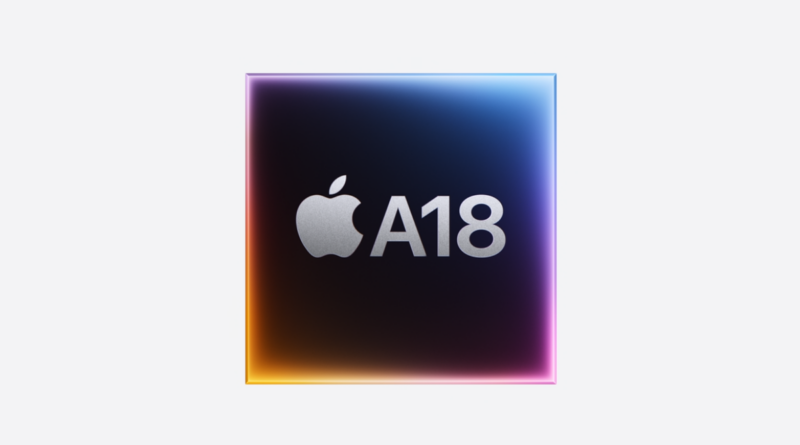Apple’s A18 offers solid performance advantages, challenging the Ryzen 9 9950X on Geekbench alone.
Apple’s latest A18 chip (not the Pro) for smartphones doesn’t beat AMD’s Ryzen 9 9950X and Apple’s M4 with a single-threaded load in Geekbench 6, but it seems to beat all CPUs of previous generations for desktops and laptops. But when it comes to multi-threading, the relative number of cores really has an impact on performance.
Apple’s vanilla A18 processor has two high-performance cores that run up to 4.0 GHz (the first time the company’s smartphone processor hits such high frequencies) and four low-end cores. The new A18 system-on-chip (SoC) scores 3409 points in the single-threaded Geekbench 6 and 8492 points in the Geekbench 6 multi-threaded benchmark, both of which are very good results . In fact, they are 15.5% higher for single-threaded performance and 16.6% higher for multi-threaded performance compared to its predecessor, the A16 Pro. The new chip is also faster than Qualcomm’s Snapdragon 8 Gen 3, at least in this one test.
| Row 0 – Cell 0 | A18 | A17 Pro | A16 Bionic | Snapdragon 8 Gen 3 |
| General comments | 2P+4E, up to 4.0 GHz | 2P+4E, up to 3.77 GHz | 2P+4E, up to 3.46 GHz | 5P+3E, up to 3.01 GHz |
| One Foundation | 3409 | 2950 | 2641 | 1959 |
| Multi-Core | 8492 | 7279 | 6989 | 4989 |
| Source | https://browser.geekbench.com/v6/cpu/7714134 | https://browser.geekbench.com/v6/cpu/7710531 | Row 4 – Cell 3 | https://browser.geekbench.com/v6/cpu/7139153 |
Compared to PC-grade processors, the A18 also looks pretty good. It beats Apple’s M3, AMD’s Ryzen 9 7950X, and Intel’s Core i9-14900KS processors in the Geekbench 6 single-threaded benchmark. It also challenges AMD’s Ryzen 9 9950X, but falls behind the M4’s Apple (with high clocks of 400 MHz) both CPUs have very high power ratings. As you might expect, when it comes to multi-threading performance, the six-core A18 falls far behind PC-grade processors. So, the trick is whether the eight-core A18 Pro can challenge Apple’s M3.
| Row 0 – Cell 0 | A18 | M3 | M4 | Ryzen 9 9950X | Core i9-14900KS |
| General comments | 2P+4E, up to 4.0 GHz | 4P+4E, up to 4.05 GHz | 4P+6E, up to 4.40 GHz | 16P/32T, 4.30 GHz – 5.75 GHz | 8P+16E/32T, 3.20 GHz – 6.0 GHz |
| One Foundation | 3409 | 3076 | 3697 | 3482 | 3362 |
| Multi-Core | 8492 | 11863 | 13778 | 23584 | 23445 |
| Source | https://browser.geekbench.com/v6/cpu/7714134 | https://browser.geekbench.com/v6/cpu/3343681 | https://browser.geekbench.com/v6/cpu/7708799 | https://browser.geekbench.com/v6/cpu/7707083 | https://browser.geekbench.com/v6/cpu/7709430 |
Bearing in mind that the increase in frequency of A18, compared to its predecessor is 6%, most of the improvements in single-thread and multi-thread performance should be brought about by micro-architecture improvements.
While the increased performance looks modest, this is not too surprising since Apple’s A18 is made with TSMC’s N3E (3nm-class) process technology designed to reduce costs compared to N3B ( 3nm-class), at the cost of transistor density. more to increase performance or lower power consumption (although N3E enables slightly higher clocks and lower power compared to N3B). In other words, Apple had a limited transistor budget to add here.
One thing to remember about the Geekbench 6 results is that we are dealing with a synthetic benchmark, and the real world performance of Apple’s A18 and A18 Pro will vary. However, the Geekbench 6 results seem to indicate that Apple’s performance estimates are correct (who said they were based on Geekbench 6 anyway?)
#Apples #A18 #offers #solid #performance #advantages #challenging #Ryzen #9950X #Geekbench
